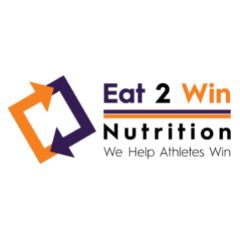Dietary and Nutritional Supplementation to Enhance the Effects of Resistance Training
Q&A for Session #2
Jeffrey Stout, PhD, CSCS, FISSN
Sports Nutrition Symposium 2.0
Monday January 18th @7pm CST
Appropriately designed resistance training (RT) programs for men, women, young and old, will experience significant muscle hypertrophy and strength. However, the adaptation rate can vary depending on the training status, gender, age, and nutrition. This lecture will review how nutrition and selected dietary supplements can maximize the outcomes of RT.
All live sessions are free to attend. If you want lifetime access to the sessions from Sports Nutrition Symposium 1.0, 2.0 and 3.0 then check out the VIP Pass!
- Can one be in negative nitrogen balance and gain lean mass? For example, can someone be in a calorie deficit and gain muscle?
- If an athlete’s nitrogen balance is negative, then they are catabolic and not building muscle. If there are not enough calories to adapt to training then it’s difficult to gain muscle. It may appear that someone is gaining muscle, but actually they are losing mass (losing some muscle mass as well) and only appear leaner not actually gaining muscle. An athlete can be in a neutral calorie intake (enough calories to meet energy demands, but not in excess), then an athlete could lose body fat at a faster rate, maintain muscle mass, and possibly gain some muscle. If an athlete is in a calorie deficit, then they need to be on the higher end of protein intake to maintain muscle and stay in a positive nitrogen balance. We also need to be aware of the error (3-6%) in measuring body composition.
- Can a leucine supplement be added to protein 2 or 3 to enhance anabolic response?
- Yes. A recent study demonstrated if you add the essential amino acids, especially leucine, it will allow whey to work more effectively. So, you can essentially decrease your protein intake. For example if you didn’t want to take 35 grams of whey protein, you could add 1-2 gram leucine to your 20 grams whey and see the same anabolic response.
- So if CHO are so important to power athletes, where do people get the idea that a low CHO diet is the best way to go?
- These people are looking to lose body fat only, not gain muscle/strength. Low CHO diet has the sole intent to drop body fat and maintain as much muscle as possible. However, to maintain muscle and strength low to moderate glycemic index foods are recommended for regular instances of eating throughout the day. High glycemic carbohydrates are recommended immediately following training.
- Should people drink BCAAs during resistance exercise to stay in muscle protein synthesis?
- No. Continually drinking amino acids does not allow the body to rest. We need all 9 essential amino acids for a reason therefore, whole proteins work best. BCAAs are effective for a certain amount of time, but achieving intake of all amino acids is optimal and promotes longer protein synthesis.
- Do you know of any studies done for protein requirements of Military members (training 2x per day)?
- It really depends on the intensity of training and number of days training. Suggestion would be to add the post training exercise drink after each training or even chocolate milk would work sufficiently. Also, make sure to be consuming adequate protein and meals and throughout the day.
- It really depends on the intensity of training and number of days training. Suggestion would be to add the post training exercise drink after each training or even chocolate milk would work sufficiently. Also, make sure to be consuming adequate protein and meals and throughout the day.
- Are the protein/kg recommendations the same for the overweight or obese athlete?
- No. Limit working with body weight up to 100kg body weight. Then evaluate protein at 1.4-2.4 g/kg. It can become quite complex, because there is no accurate way to evaluate body composition and lean body mass. An overweight or obese athlete will not have more muscle mass than a 200# lean man.
- Is the anabolic window the same for men and women?
- Yes. In some cases creatinine works better in women than men. Women have a natural ability to be anti-catabolic, so it is harder to break down muscle in women compared to men. So women therefore may actually need less protein and creatine, but he would still treat them the same as men especially when it comes to power athletes.
- Before bedtime - does adding casein protein impede sleep quality?
- There is research that discusses both impeding sleep quality and enhancing sleep quality. It is really dependent on the individual and you have to do what is best for you. Consuming chicken and beef will also work the same.
- There is research that discusses both impeding sleep quality and enhancing sleep quality. It is really dependent on the individual and you have to do what is best for you. Consuming chicken and beef will also work the same.
- What about micronized vs. monohydrate creatine? Same benefits?
- Micronized just means that monohydrate was compounded even smaller. There is no difference. German creatine is the best, creapure is the highest quality he knows of. He would not choose anything else besides that product.
- Isn’t 3 g/kg of CHO per day for athletes a fairly low amount?
- For resistance training, it is not. For an endurance athlete, yes it can be. Depends on training intensity and duration. You can go as high as 10-12 g/kg of body weight depending on training. You can also go as low as 5-6 g/kg depending on intensity and volume of training. For resistance athletes, they typically do not use as much. Ultimately, depends on the training volume and intensity though. If training 2x a day, resistance athletes need to double that 3 g/kg amount.
- For resistance training, it is not. For an endurance athlete, yes it can be. Depends on training intensity and duration. You can go as high as 10-12 g/kg of body weight depending on training. You can also go as low as 5-6 g/kg depending on intensity and volume of training. For resistance athletes, they typically do not use as much. Ultimately, depends on the training volume and intensity though. If training 2x a day, resistance athletes need to double that 3 g/kg amount.
- How prevalent is protein and nitrogen spiking in the supplement industry?
- He has seen whey cutting in the supplement industry, which he does not like. You have different whey protein concentrations. Examples are WPC 30, WPC 60, and WPC 80. This means that 80% of a 10 g dose or 8 grams is protein, the rest is not. What they have done is they will take a WPC80 and blend it with a WPC30, which they will claim you are then getting 8 g of PRO per scoop and you are actually getting 5 grams. This is a severe violation and if caught the company can get shut down. He wishes there was more testing to regulate this. That is why it is important to go with reputable companies when buying these products.
- He has seen whey cutting in the supplement industry, which he does not like. You have different whey protein concentrations. Examples are WPC 30, WPC 60, and WPC 80. This means that 80% of a 10 g dose or 8 grams is protein, the rest is not. What they have done is they will take a WPC80 and blend it with a WPC30, which they will claim you are then getting 8 g of PRO per scoop and you are actually getting 5 grams. This is a severe violation and if caught the company can get shut down. He wishes there was more testing to regulate this. That is why it is important to go with reputable companies when buying these products.
- Any experience with athletes who feel like they need to ingest more water or complain of dry mouth with creatine use?
- Has not heard of this, as normally they are drinking 3-5 grams in a recovery drink which provides a lot of fluid. Athletes are supposed to drink 4.5-6 cups a day of water. It is more of myth that creatine causes dehydration. If some athletes feel thirsty, not sure how they are taking their creatinine as it should not make them dehydrated. Creatine is hydrophilic, so it does the opposite of what you would think. Creatine supplementation maintains hydration and in studies has shown to decrease injuries in football players compared to athletes that did not consume it.


